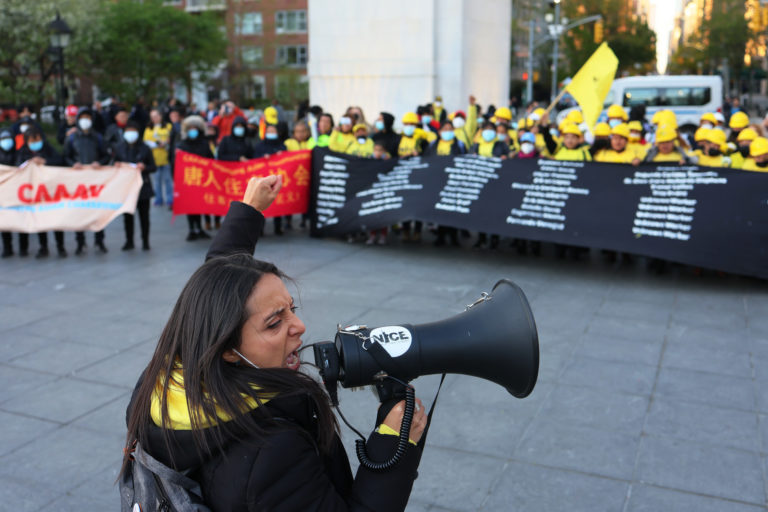Julia Deng is a student at Harvard Law School.
In today’s News and Commentary, workers at HarperCollins go on strike, one of the unions to reject the rail deal pushes back their earliest date to strike, and former employees sue Twitter under the WARN Act.
HarperCollins employees began an indefinite strike yesterday. The union, which is part of Local 2110 of the United Auto Workers, represents about 250 editorial, publicity, sales, marketing, legal and design employees. It has demanded increases the minimum starting salary from $45,000 to $50,000 and a more racially diverse workforce. The dispute takes place against the backdrop of an industry standard of widespread long hours and low pay, conditions which many in the industry say are keeping publishing disproportionately white. “Passion Doesn’t Pay the Rent,” as one striker’s protest sign claimed from the demonstration in front of corporate headquarters in New York City. The strike follows unfair labor practice charges filed with the National Labor Relations Board last month following layoffs which led to the termination of some union members.
The Brotherhood of Maintenance of Way Employees Division of the International Brotherhood of Teamsters (BMWED, which is one of the unions that rejected the recent labor deal recommended by the Biden administration, has postponed the threat of a strike. On November 9, the union announced an extension of negotiations that will involve delaying the end of the no-strike, no-lockout period from November 20 to December 4. The BMWED’s first day to strike is now coordinated with that of the other rail union to reject the proposed deal with railroad management. An additional purpose in the extension was to allow two other major rail unions to vote on the tentative agreement on November 21 without disruption.
Five former Twitter employees have sued the company under the federal Worker Adjustment and Retraining Notification (WARN) Act, which requires employers to provide advance notice, generally within 60 days, of mass layoffs or plant closings. In Twitter’s case, the layoffs began on the night of November 3, less than a week after Elon Musk acquired the company on October 27. The company is expected to cut 50% of its workforce, or 3,700 people. In response to criticism, Musk posted: “Regarding Twitter’s reduction in force, unfortunately there is no choice when the company is losing over $4M/day. Everyone exited was offered 3 months of severance, which is 50% more than legally required.” If the WARN Act claims are successful, Twitter could be liable for back pay and benefits for the period of the violation. Meta announced this week that it would also be laying off 11,000 employees.






Daily News & Commentary
Start your day with our roundup of the latest labor developments. See all
December 21
Argentine unions march against labor law reform; WNBA players vote to authorize a strike; and the NLRB prepares to clear its backlog.
December 19
Labor law professors file an amici curiae and the NLRB regains quorum.
December 18
New Jersey adopts disparate impact rules; Teamsters oppose railroad merger; court pauses more shutdown layoffs.
December 17
The TSA suspends a labor union representing 47,000 officers for a second time; the Trump administration seeks to recruit over 1,000 artificial intelligence experts to the federal workforce; and the New York Times reports on the tumultuous changes that U.S. labor relations has seen over the past year.
December 16
Second Circuit affirms dismissal of former collegiate athletes’ antitrust suit; UPS will invest $120 million in truck-unloading robots; Sharon Block argues there are reasons for optimism about labor’s future.
December 15
Advocating a private right of action for the NLRA, 11th Circuit criticizes McDonnell Douglas, Congress considers amending WARN Act.